The University of Chicago Press, Chicago 60637
The University of Chicago Press, Ltd., London
2018 by The University of Chicago
All rights reserved. No part of this book may be used or reproduced in any manner whatsoever without written permission, except in the case of brief quotations in critical articles and reviews. For more information, contact the University of Chicago Press, 1427 East
60th Street, Chicago, IL 60637.
Published 2018
Printed in the United States of America
27 26 25 24 23 22 21 20 19 18 1 2 3 4 5
ISBN-13: 978-0-226-53717-7 (cloth)
ISBN-13: 978-0-226-53720-7 (paper)
ISBN-13: 978-0-226-53734-4 (e-book)
DOI: https://doi.org/10.7208/chicago/9780226537344.001.0001
Library of Congress Cataloging-in-Publication Data
Names: Lewin, Ellen, author.
Title: Filled with the spirit: sexuality, gender, and radical inclusivity in a Black Pentecostal church coalition / Ellen Lewin.
Description: Chicago; London : University of Chicago Press, 2018. | Includes bibliographical references and index.
Identifiers: LCCN 2017030693 | ISBN 9780226537177 (cloth: alk. paper) | ISBN 9780226537207 (pbk: alk. paper) | ISBN 9780226537344 (e-book)
Subjects: LCSH: HomosexualityReligious aspectsChristianity. | African American sexual minoritiesReligious life. | Pentecostalism.
Classification: LCC BR115.H6 L48 2018 | DDC 289.9/408660973dc23
LC record available at https://lccn.loc.gov/2017030693

This paper meets the requirements of ANSI/NISO Z39.48-1992 (Permanence of Paper).
Like most people who have completed books after years of research, writing, and consulting, I owe enormous debts to many different people, including those who so generously invited me into the Fellowship, colleagues from my own institution and elsewhere, and friends and family. Part of what happened in the course of writing this book is that the boundaries between these categories became hazy, particularly as colleagues and interlocutors became friends and family.
The Fellowship connected me with so many loving and supportive people that it is difficult for me to be able to thank all of those whose encouragement and enthusiasm sustained me while I worked on this project. I not only had the privilege of working with people whose willingness to share their spiritual lives gave my research meaning, but I gained deep and nurturing friendships that will continue to be important to me in the years to come. Unlike other research I have done, I had no sense at the end of this project that I could say good-bye to those with whom I have worked or, indeed, that my connection with TFAM had come to an end. One Fellowship friend asked me in the summer of 2016 what would happen after I finished the book. What do you mean? I asked. Will you still come to our events? she continued. When I told her that I most certainly would, she said, Good. Because otherwise we would miss you. And I would miss them.
With the caution that I am certainly going to miss mentioning some TFAM people who were constant sources of support, I want to particularly thank Bishop Yvette Flunder, who, along with her partner, Mother Shirley Miller, opened the coalition to me, making every aspect of its operation accessible to me and showing enormous confidence in the ability of an outsider to document TFAMs story. Their warm embrace has framed every interaction Ive had with the Fellowship. Pastor Kevin Tindell invited me to the first service I attended and made the declaration that started my connection to TFAM. Bishop Phyllis Pennese and Vickie Sides were constant friends as I pursued the research and as I watched their son, Brandon Sides, turn into a fabulous adult.
Veronica Jordan, who is the official photographer for TFAM and a member of City of Refuge, provided the pictures that appear in this book; my only regret is that I couldnt include much more of her beautiful work. I apologize for any omissions in this list: the folks who helped me find my footing in TFAM are really too numerous to list here, and include some people whose names I still dont know.
I also owe gratitude to Bishop Wyatt Greenlee and Bishop Joseph Tolton, and a host of others (titles mostly omitted): Glenn Alexander, Dr. Lucki Allen, Dr. P. J. Anderson, Vanessa Brown, Bishop Alex Byrd, Yunus Coldman, James Darby, Pei des Rosiers, Toni Dunbar, Nubian Flunder, Darlene Garner, Twanna Gause, Phil Gray, Candy Holmes, Ann Jefferson, Lesley Jones and Noni Gordon-Jones, Taunya Kinney, Charla Kouadio and Theresa Coley-Kouadio, Paul Lucas, Carl Madgett, Katrina Marsh, Tanya Maryoung, James Pearman, Darren Phelps, Joi Rhone, Marvin Roberts, Deneen Robinson, Troy Sanders, Anthony Sullivan, Sherry Thomas, Andrea Vassell, Alvis Ward, and Alex Williams, and many members of City of Refuge UCC, Pillar of Love UCC, and Rivers@Rehoboth, the congregations where I spent the most time. Veronica Jordan, who is the official photographer for TFAM and a member of City of Refuge, provided the pictures that appear in this book; my only regret is that I couldnt include much more of her beautiful work. I apologize for any omissions in this list: the folks who helped me find my footing in TFAM are really too numerous to list here and include some people whose names I still dont know.
One of the special friends I made at TFAM convocations is Tim Wolfe, divinity student extraordinaire, who spent enormous amounts of time unraveling the theological mysteries of Christianity and especially Pentecostalism and who also served as my guide to black churches and gospel music in Chicago. Tim provided vital clarifications that helped me improve the manuscript, which he read while he juggled a nearly impossible schedule of academic and professional obligations. Im also grateful for having met a new colleague, Terry Todd, at TFAM, and for his insightful comments on the manuscript.
I was very fortunate while working on this project to receive funding from the Arts and Humanities Initiative at the University of Iowa (201011), a Martin Duberman Fellowship from the Center for Lesbian and Gay Studies (CLAGS) at the City University of New York (201011), and research fellowships from the Louisville Institute and the National Endowment for the Humanities (201516). I also benefited enormously from the opportunity to enjoy the tranquility of the Obermann Center for Advanced Studies at the University of Iowa during my sabbatical semester in spring of 2012, along with the collegial support of the other scholars who worked there that semester. I never would have known about the resources of the Louisville Institute without the advice of Kristy Nabhan-Warren, so I am grateful for her suggestion that I apply there for funding.
I received meticulous and challenging comments from the two University of Chicago Press readers, who graciously allowed their identities to be revealed to me: E. Patrick Johnson and Dawne Moon. These two scholars are perfectly positioned to make astute critiques of my work, so I am grateful that they supported my efforts even as they caught just about every error I could have made. They very appropriately held my feet to the fire, and I cannot thank them enough for taking the work so seriously.


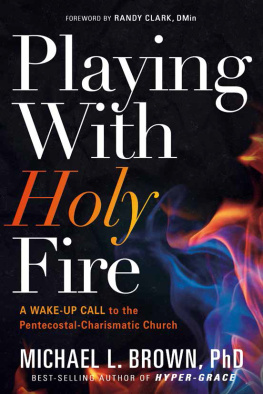
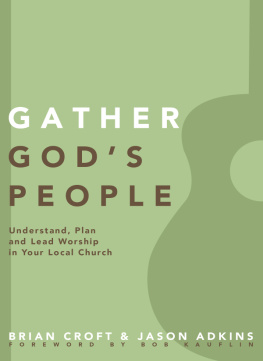
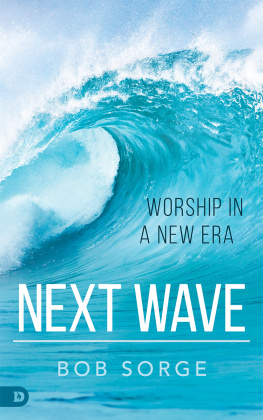
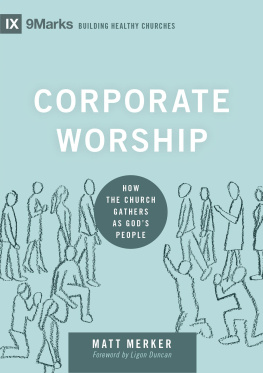
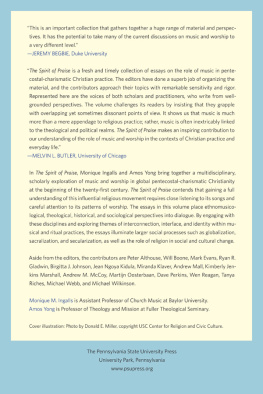
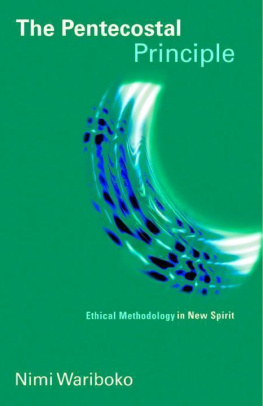

 This paper meets the requirements of ANSI/NISO Z39.48-1992 (Permanence of Paper).
This paper meets the requirements of ANSI/NISO Z39.48-1992 (Permanence of Paper).